Taste characteristics of hand-flushed coffee beans in Kenya describe the factors affecting the flavor of Kenyan SL28sl34 coffee varieties
When ranking the best coffee in the world, only a few important coffee growing areas are often at the top of the list. Qianjie thinks Kenyan coffee is also in the category. Although the history of coffee development in Kenya is shorter than that in other coffee countries, the production and marketing process chain of Kenyan coffee is complete, and the characteristics of small-scale growers are also one of the main reasons for its rapid development. Kenyan coffee is mainly grown in the plateau and hilly areas around Mount Kenya.
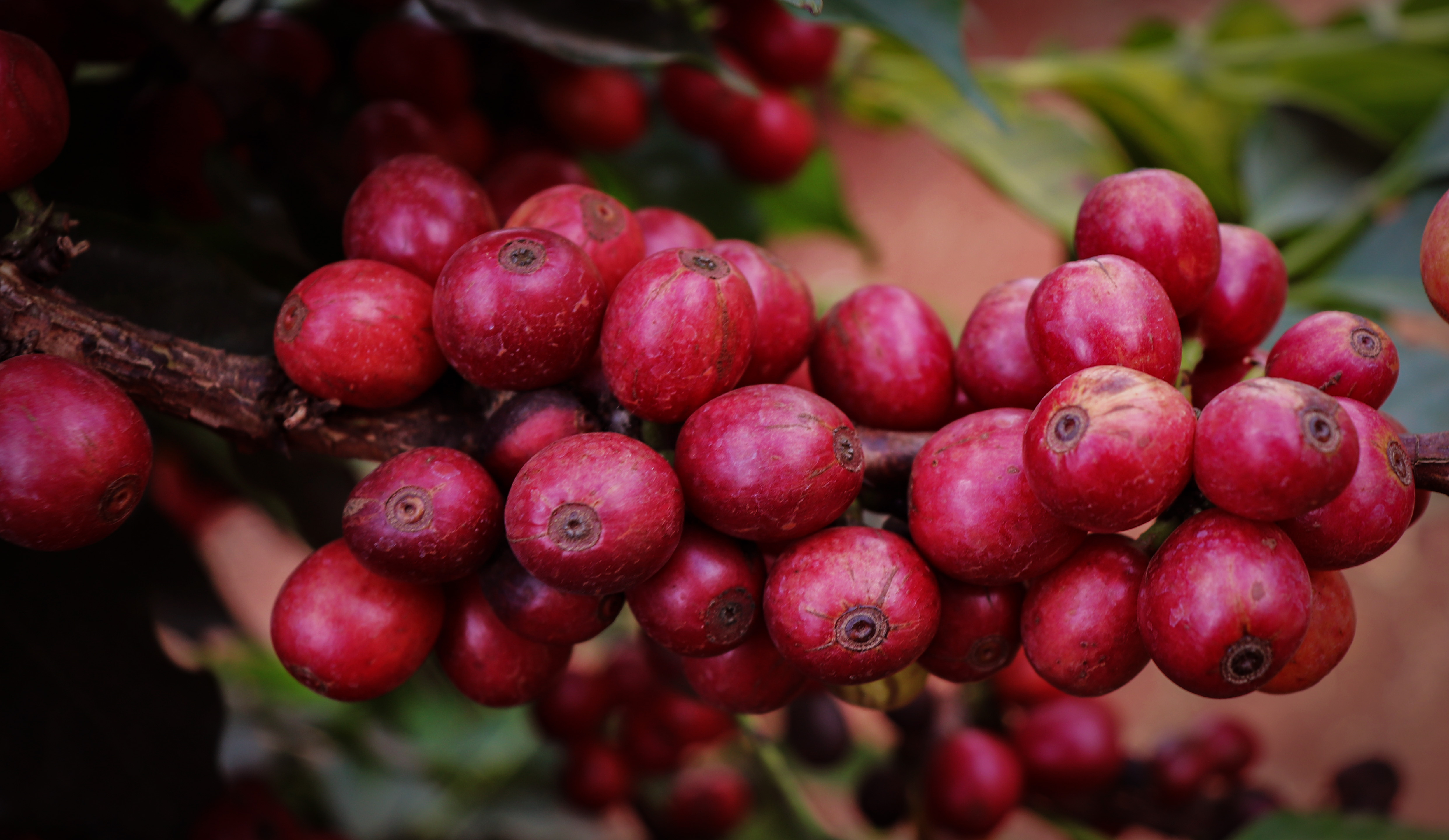
Qianjie believes that Kenyan coffee is an extreme coffee that people who like it will be crazy about and those who don't like will dislike. Qianjie believes that the reason why Kenyan coffee has become the elite of the coffee elite is that Kenyan coffee as a whole is full of delicate and complex flavor. It is no accident that Kenyan farmers have many different factors to their advantage, whether it is the ideal planting conditions or commercial strategy. Today Qianjie will explain the charm of Kenyan coffee culture with Kenyan coffee beans of my sister's coffee.
Although Qianjie has bought a lot of Kenyan coffee since it opened its shop, Kenyan coffee beans are not only the best coffee beans in Qianjie Coffee, but also the most common ones in enterprises. But at present, there is only one Kenyan coffee bean on sale in Front Street Coffee-Azaria. Here are the details of Asaria coffee beans in Kenya on the front street:
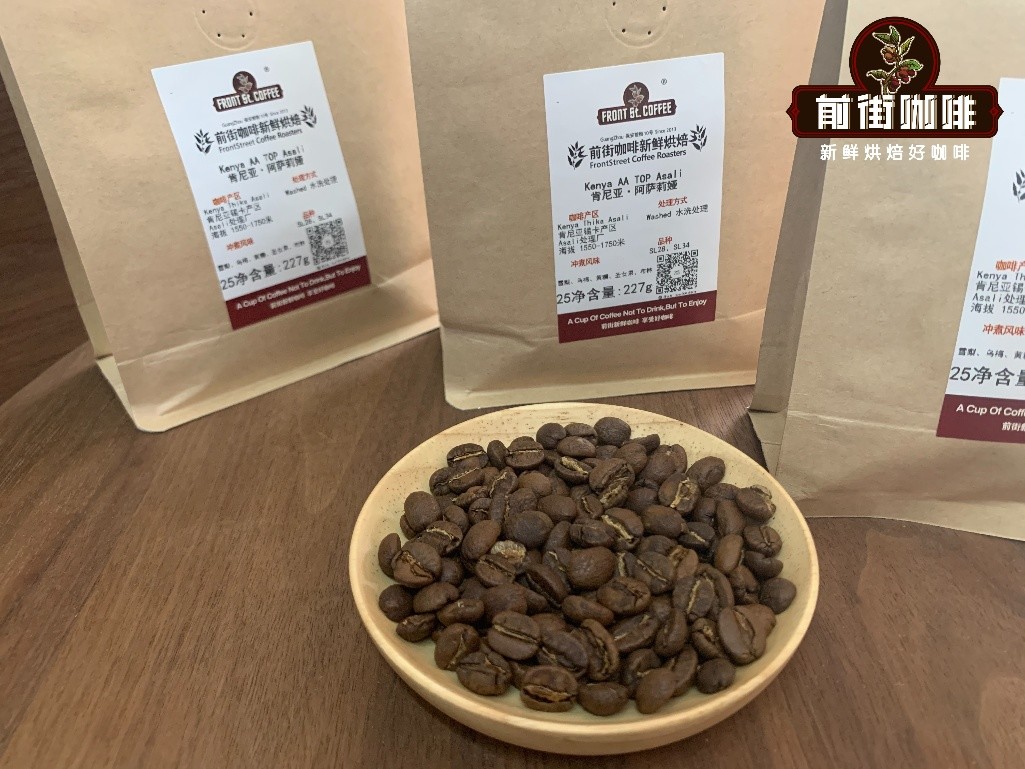
[Kenya Asali AA Top exquisite 72-hour washing]
Country: Kenya
Producing area: Sika
Processing plant: Asali processing plant
Altitude: 1550-1750 m
Soil: volcanic soil
Varieties: SL28, SL34
Treatment: 72 hours washing
So what are the flavor characteristics of this coffee bean? What does it taste like? Coffee fans should know that Kenyan coffee is famous for its full, balanced flavor and taste. However, coffee beans from different regions have more or less subtle differences in taste, depending on the region, variety and processing methods in which the coffee is grown. Depending on the variety of coffee beans, there will be a range of flavors from berries such as blackcurrant to citrus. Front street coffee Asalia coffee beans have medium mellow thickness, rich caramel sweetness, very bright acidity, light tomato flavor, obvious black plum tone and clean as a whole. Qianjie can only vaguely feel the flavor of small tomatoes in the recent Kenyan coffee. As for why this phenomenon occurs, Qianjie believes that it is mainly related to the recent changes in soil properties in Kenyan coffee producing areas. The high acidity of Kenyan coffee is also one of the important factors that many coffee friends are infatuated with Kenyan coffee. Qianjie believes that this is related to the high altitude and volcanic soil of Kenyan coffee producing areas.
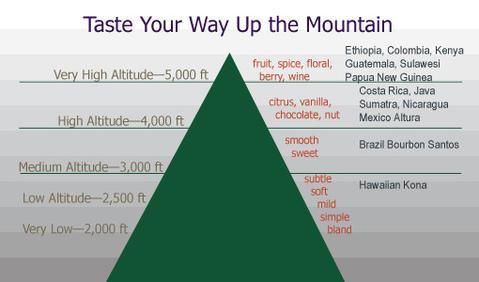
The relationship between altitude and coffee bean flavor
It is generally believed that the higher the altitude, the higher the quality of coffee. In fact, some countries (Honduras, El Salvador, etc.) also grade coffee according to the altitude of cultivation, and the status of crops increases with the increase of height. Have you ever wondered why? The forehead is here for you: higher altitude means lower temperature. Just like in life, like many things in life, you can't rush to grow good coffee. Colder temperatures mean that coffee beans grow more slowly, while cherries that surround them ripen more slowly. This extra time allows coffee fruits to develop complex flavors. The slower the coffee grows, the denser the beans and the better the taste. The month at higher elevations means that a good drainage system, and a better drainage system, will also reduce the moisture in the coffee, thus concentrating the production of sugar flavor. Coffee plants grown at high altitudes are also less vulnerable to diseases and insect pests, such as widespread leaf rust, which means fewer crop defects. This is another feature to improve overall quality.
Relationship between volcanic soil and coffee bean flavor
Volcanoes provide many benefits for the growth of plants. Volcanic soil is rich in nutrients and minerals, which provides a very fertile soil for growing coffee plants, including phosphorus, potassium, boron, iron and zinc. All the nutrients needed for coffee to thrive are found in volcanic soil. The volcanic soil is also very light and fluffy and can be drained better. In addition to the soil, the volcano provides shade for coffee trees, which makes coffee cherries ripen more slowly. In addition, volcanoes provide high elevations and microclimates, allowing coffee to thrive in many ways.
Friends who are familiar with Qianjie coffee will notice the divine bean information on the Qianjie coffee package. Kenyan coffee beans are different from other producing countries: SL28 and SL34, which sound like robot names. SL actually stands for Scott Laboratories, the name of the Kenyan research center that first developed these coffee varieties in the 1930s. Although there are still many "official" SL varieties recognized by the World Coffee Research Organization, SL28 and 34 are the most popular boutique coffee varieties. Recent studies have shown that this series of coffee is related to the bourbon genome.
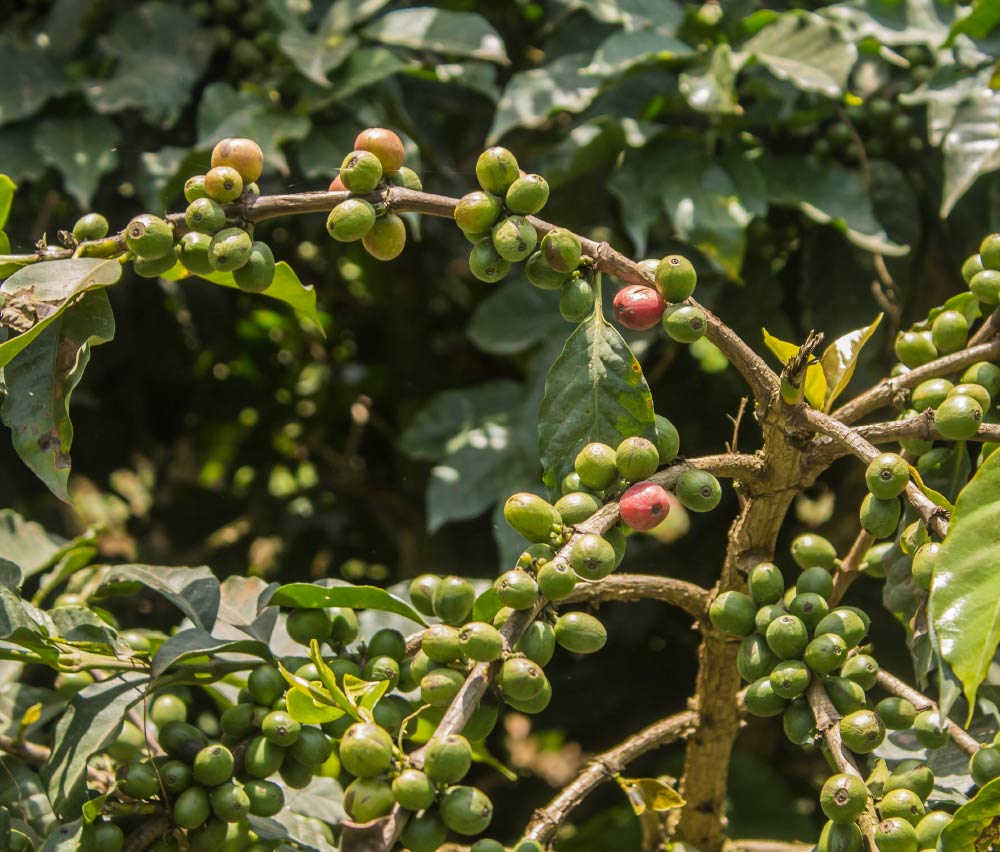
The SL-28 tree is tall with green leaves, high yield and good cup quality. They require little nutrition and are drought resistant, but are susceptible to coffee leaf rust, coffee berry disease (CBD) and soil nematodes. SL-28 trees produce big cherries after three years, and if properly cared for, their "milling losses" are very low (meaning the right ratio of parchment to raw coffee). In contrast, the SL-34 tree is structurally similar to SL-28. The only major visual difference is that the leaf tips of SL-34 trees are dark bronze rather than green. SL-34 trees also have higher requirements for nutrition and slightly lower yield. Very similar to SL-28, they are also vulnerable to CBD, leaf rust and pests. SL varieties have been grown in Kenya for decades. They have been around for much longer than other popular coffee varieties in the country and are naturally suited to the country's climate. Today, it is estimated that the SL family accounts for 80 per cent of all coffee exported from Kenya.
Kenyan coffee is not easy to brew, and many customers on the front street will report that it is either too sour or too bitter when they buy beans when they get home, and they are not as good as the coffee brewed in the store. Here in Qianjie, the standard of normal cooking products in Qianjie stores is given:
Brewing parameters of Qianjie coffee:
V60 filter cup
Water temperature 91 ℃
Ratio of gouache to flour at 1:15
Powder content 15g
Degree of grinding (China 20 standard screen pass rate of 80%)

Qianjie cooking technique: use 30 grams of water for steaming for 30 seconds, small water flow around the circle to 125 grams for segments, when the water level is about to expose the powder bed, continue to inject water to 225 grams to stop water injection, wait for the water level to drop and remove the filter cup when the powder bed is about to be exposed. (the time of steaming starts) the extraction time is 2 minutes 39 percent 00 ". Take this standard as an example, and then adjust it according to your own taste, you can find a brewing method that suits your own taste. If you practice more at home, you will certainly be able to brew good Kenyan coffee.
Professional coffee knowledge exchange more coffee bean information please follow the coffee workshop (Wechat official account cafe_style)
For more boutique coffee beans, please add private Qianjie coffee on Wechat. WeChat account: kaixinguoguo0925
Important Notice :
前街咖啡 FrontStreet Coffee has moved to new addredd:
FrontStreet Coffee Address: 315,Donghua East Road,GuangZhou
Tel:020 38364473
- Prev
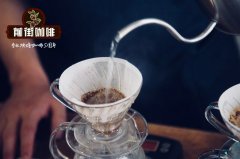
Colombian pink bourbon coffee bean pink bourbon coffee flavor story
Professional coffee knowledge exchange more coffee bean information please follow the coffee workshop (Wechat official account cafe_style) pink bourbon coffee types: bourbon is a kind of Arabica coffee. Pink bourbon coffee beans are bred by cross between red and yellow bourbon. Due to the existence of recessive genes, the expression of this color and its unique taste characteristics are easy to be yellow and yellow in the same pollen grain.
- Next
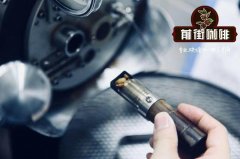
Guatemala Vivet South Fruit Region Blue River Estate Wash Treatment Fine Coffee
Professional coffee knowledge exchange More coffee bean information Please pay attention to Coffee Workshop (Weixin Official Accounts cafe_style) Located on the border between Guatemala and Mexico, the towering mountains and pristine rainforest environment are the best places to grow coffee. Many excellent cup winning estates are concentrated here, such as Injerto Estate, the COE champion for many years, which can be said to be the champion.
Related
- Detailed explanation of Jadeite planting Land in Panamanian Jadeite Manor introduction to the grading system of Jadeite competitive bidding, Red bid, Green bid and Rose Summer
- Story of Coffee planting in Brenka region of Costa Rica Stonehenge Manor anaerobic heavy honey treatment of flavor mouth
- What's on the barrel of Blue Mountain Coffee beans?
- Can American coffee also pull flowers? How to use hot American style to pull out a good-looking pattern?
- Can you make a cold extract with coffee beans? What is the right proportion for cold-extracted coffee formula?
- Indonesian PWN Gold Mandrine Coffee Origin Features Flavor How to Chong? Mandolin coffee is American.
- A brief introduction to the flavor characteristics of Brazilian yellow bourbon coffee beans
- What is the effect of different water quality on the flavor of cold-extracted coffee? What kind of water is best for brewing coffee?
- Why do you think of Rose Summer whenever you mention Panamanian coffee?
- Introduction to the characteristics of authentic blue mountain coffee bean producing areas? What is the CIB Coffee Authority in Jamaica?

